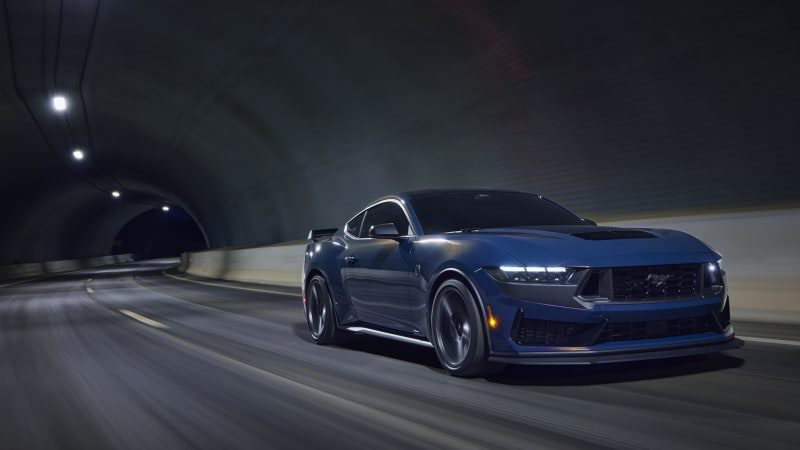The 2024 Ford Mustang will be 'much more difficult' to tune

For many enthusiasts, part of the Ford Mustang’s appeal is the tremendous amount of aftermarket support that the model benefits from. While third-party companies will sooner or later get their hands on the seventh-generation model, the scope of modifications that can be performed to the four- or the eight-cylinder engine will be reduced because Ford has made the car’s ECU more difficult to tune.
Ed Krenz, the Mustang’s chief engineer, told Ford Authority that the new model unveiled in September 2022 will be “much more difficult” to tune than its predecessors. He explained that’s due to the Fully-Networked Vehicle (FNV) electrical architecture that the Mustang is built around. This system enables over-the-air software updates, among other features, but it also complicates the task of tuning the ECU.
Krenz noted that the Mustang’s electrical system is encrypted, and it’s programmed to shut down if it detects what’s referred to as a “break.” If that happens, it either turns off entirely or disables certain components or functions. That’s bad news for both hackers and tuners.
That doesn’t mean that Mustang owners will be stuck with the stock output. Ford Authority added that the Blue Oval is open to the idea of letting trusted tuning companies dial in more power. None were identified by name, but Shelby is one of the firms that comes to mind. And, owners who want more horsepower and torque may be able to get both directly from the source when the time comes. For example, Ford Performance just announced a calibration kit that increases the 2.3-liter-powered Bronco’s output by around 30 horsepower and 60 pound-feet of torque when burning premium fuel.
Ford isn’t an exception to the rule; tuning the eighth-generation Chevrolet Corvette is equally difficult due to ECU-related constraints.



